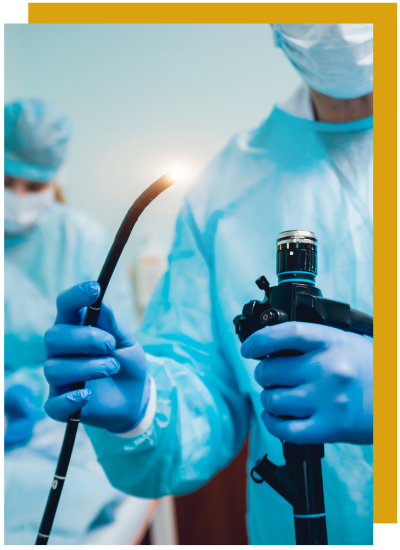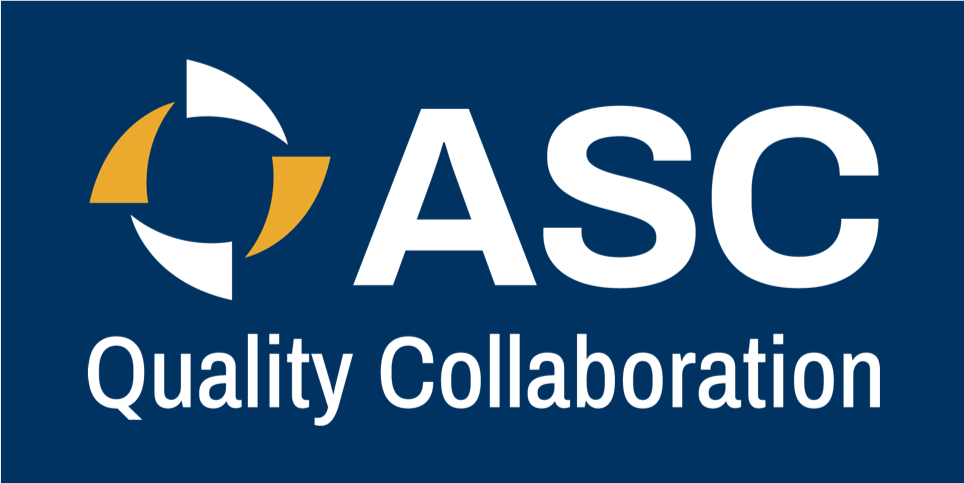Endoscope Reprocessing Toolkit
The resources in this toolkit may only be used for internal improvement and education efforts. They may not be used for commercial purposes.

Close adherence to established guidelines for reprocessing endoscopic equipment is essential to preventing the transmission of pathogens.
The ASC Quality Collaboration has assembled a variety of resources and information that may be used to supplement your current processes to enhance existing reprocessing practices.
The Endoscope Reprocessing Toolkit contains both essential resources and a broader array of materials, including:
Assessment Tools
- Endoscope Reprocessing: What CMS Surveyors are Looking for
- Gap Analysis and Risk Assessment Document (HICPAC) – This document provided by HICPAC assists facilities in determining if their flexible endoscope reprocessing practices are high-quality and reliable, minimize infection risk, and are consistent with “Essential Elements of a Reprocessing Program for Flexible Endoscopes – Recommendations of the Healthcare Infection Control Practices Advisory Committee.
- Endoscope Reprocessing Competency (HICPAC) – This sample endoscope reprocessing competency review from HICPAC may be adapted for use in the assessment of ASC staff.
Implementation Aids
- FDA-Cleared Sterilants and High Level Disinfectants: This link leads to a list of agents that have been cleared by the U.S. Food and Drug Administration (FDA). It summarizes high level disinfectant contact conditions for each agent with an indication for high level disinfection.
- Guideline for use of High Level Disinfectants and Sterilants for Reprocessing Flexible Gastrointestinal Endoscopes (SGNA) – This 2017 guideline from the Society of Gastroenterology Nurses and Associates (SGNA) provides general information about the principles, product safety, and characteristics of high-level disinfectants and sterilants for reprocessing flexible.
- Reprocessing of Endoscopic Accessories and Valves (SGNA) – This 2014 position statement from the Society of Gastroenterology Nurses and Associates (SGNA) outlines best practices for the proper reprocessing of endoscopic valves and accessories.
- Reprocessing of water bottles used during endoscopy – This 2014 position statement from the Society of Gastroenterology Nurses and Associates (SGNA) outlines best practices for the proper reprocessing of water bottles used in endoscopy.
- Automated Endoscope Reprocessors (ASGE) – The American Society of Gastrointestinal Endoscopy (ASGE) issued this technology status evaluation report in 2016. It includes a discussion of key considerations in the use of automated endoscope reprocessors.
- Endoscope Reprocessing Policy Template (HICPAC) – This basic endoscope reprocessing policy template is based on the multi-society guidelines. It should be adapted as needed for use in each facility.
Training Materials
- Reprocessing Training Video for Olympus GI Endoscopes (Olympus) – A series of training videos regarding the reprocessing of Olympus GI endoscopes is available at this webpage.
- Essential elements of a reprocessing program for Flexible Endoscopes – Recommendations of the Healthcare Infection Control Practices Advisory Committee (HICPAC) – Guidance on ways to improve facility-level training and ensuring competency for reprocessing endoscopes.
Monitoring Tools
- Scope Reprocessing Audit Tool (AmSurg) – These sample endoscope reprocessing audit tools from AmSurg may be adapted for individual center use.
- Scope Reprocessing Audit Tool (HICPAC) – This sample endoscope reprocessing audit tool from HICPAC may be adapted for individual center use.
Workplace Reminders
- Key Endoscope Reprocessing Steps (AmSurg) – This poster from AmSurg presents key steps in endoscope reprocessing.
- Proper Endoscope Handling & Storage (SGNA) – This poster from SGNA presents proper handling and storage of endoscopes.
- How to Thoroughly Clean and Disinfection Immersible GI Endoscopes (SGNA) – This poster from SGNA depicts how to thoroughly clean and disinfect.
- Preventing Infections in Endoscopy (AHRQ) – This poster from AHRQ depicts the steps to help prevent infections in the endoscopy suite.

Guidelines from Leading Authorities
- Essential elements of a reprocessing program for Flexible Endoscopes – Recommendations of the Healthcare Infection Control Practices Advisory Committee (HICPAC) – Guidance on ways to improve facility-level training and ensuring competency for reprocessing endoscopes.
- Guideline for Disinfection & Sterilization in Healthcare Facilities (CDC) – This 2008 guideline was developed by the Centers for Disease Control and Prevention (CDC) and Healthcare Infection Control Practices Advisory Committee (HICPAC). Detailed guidance on reprocessing of endoscopes begins on page 13 of the document.
- Multi-society Guideline for reprocessing flexible Gastrointestinal Endoscopes – This 2016 consensus document presents evidence-based recommendations for endoscope reprocessing.
- Infection Control During GI Endoscopy (ASGE) – This 2008 guideline from the American Society of Gastrointestinal Endoscopy (ASGE) includes a discussion of key concepts in the reprocessing of endoscopes.
- Standards of Infection Prevention in Reprocessing of Flexible Gastrointestinal Endoscopes (SGNA) – This 2020 guideline from the American Society of Gastrointestinal Endoscopy (ASGE) includes a discussion of key concepts in the reprocessing of endoscopes.
Resources Cited
The materials presented here include publicly available resources from the following organizations:
- Centers for Disease Control and Prevention (CDC)
- U.S. Food and Drug Administration (FDA)
- American Society of Gastrointestinal Endoscopy (ASGE)
- Society of Gastroenterology Nurses and Associates (SGNA)
- AmSurg
- Agency for Healthcare Quality & Research (AHRQ)
- Olympus America
- PENTAX Medical
Comments and other feedback may be directed to Nina Goins, Executive Director, ASC Quality Collaboration.
Contact us today to learn more about how we can support you.
ASC Quality Collaboration
The only organization exclusively dedicated to advancing patient safety and quality of care delivery in ambulatory surgery centers.
